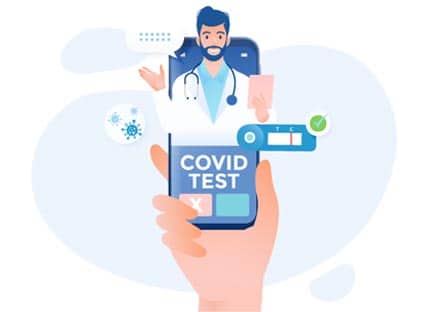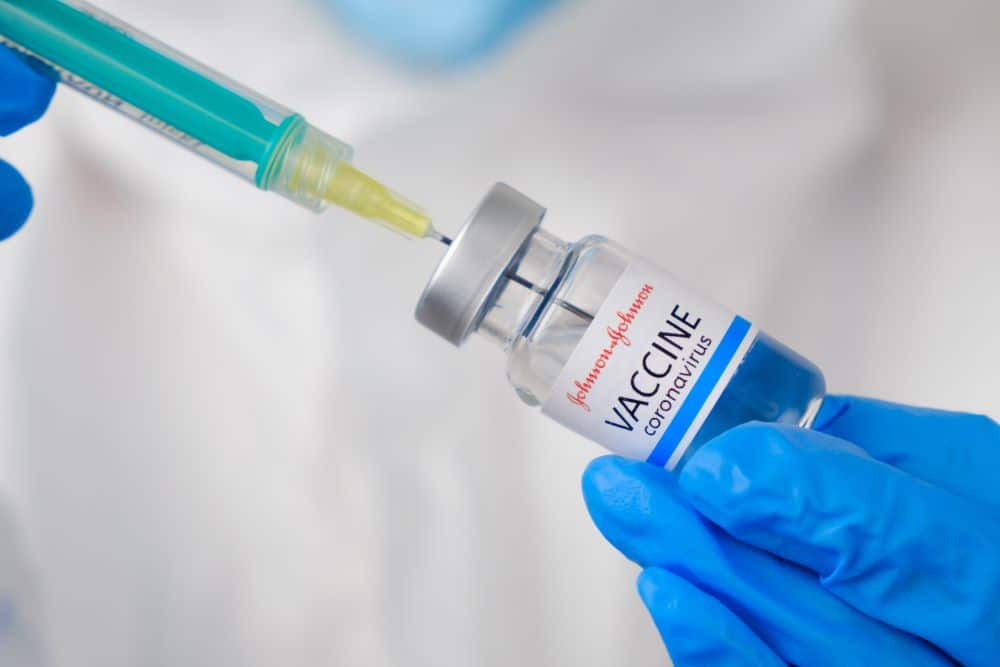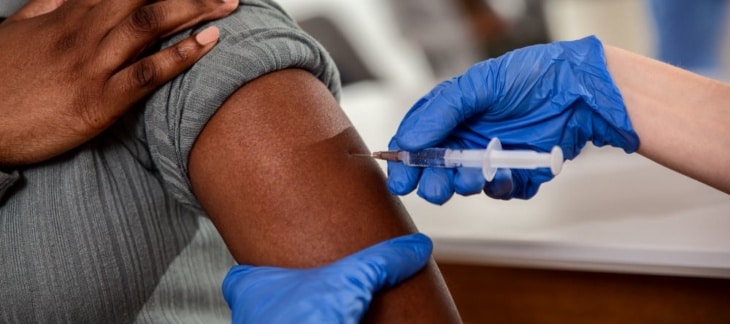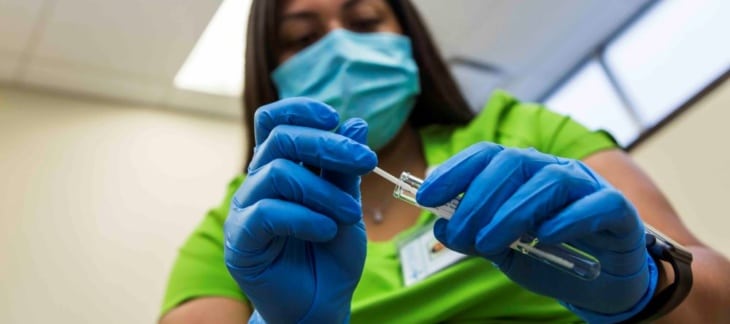As you already know, the Johnson & Johnson COVID vaccine is one of the four vaccines that are approved for emergency use in the United States. It is a vaccine with a high efficiency percentage that has different characteristics than the other approved vaccines. Just like every other vaccine, you might be concerned about the Johnson & Johnson coronavirus vaccine side effects, here we tell you all about them.
Unlike Pfizer BioNTech and Moderna, Johnson & Johnson vaccine is not an mRNA vaccine. This one is called an adenovirus vaccine, which means that it uses a cold virus to carry the spike gene into the body, where cells make harmless copies of the protein to prepare the immune system in case the person contracts the real virus.
Additionally, Pfizer, Moderna, and AstraZeneca vaccines must be kept frozen and require two doses, while J&J can last up to three months in a refrigerator, without the need of being frozen, which makes it easier to handle, and it requires only one dose of the vaccine.
Efficiency of the vaccine
According to Healthline (2021), J&J vaccine has around 72% of total efficiency, and 86% of efficiency against severe illness. These were the results in trials of people who received the vaccine and had no evidence of being previously infected.
Also, it is important to take into consideration that people had the most protection after two weeks of having been vaccinated, therefore, you should keep in mind that for the next two weeks after being vaccinated with the J&J vaccine, you still need to take precautions, keep on following the public health recommendations, and take care of your side effects.
In people who did get sick after being vaccinated, the vaccine had a very high efficacy at preventing severe symptoms that lead to hospitalization and death. No one who got COVID-19 at least 4 weeks after receiving this vaccine had to be hospitalized.
Johnson & Johnson coronavirus vaccine side effects
Possible side effects of these vaccines have proven to be very similar to the side effects of Pfizer BioNTech and Moderna vaccines.
In the case of the side effects for the area where you get the shot, you might experience the following:
- Pain around the area of the shot
- Redness
- Swelling of certain part of the arm
Regarding these side effects, you can use a clean, fresh washcloth and apply it directly to the area and do some arm exercises to ease the pain and swelling.
In the rest of your body, you might experience the following side effects most commonly:
- Tiredness
- Headaches
- Muscle pain or Body aches
- Chills
- Fever
- Nausea
These side effects occur within one or two days of getting vaccinated, they are normal and happen in most people. They are not severe and should only last a couple of days. Remember that these side effects are a sign that your immune system is creating a response, but it does not mean you have contracted the virus.
If these side effects get more severe, if you get chest pain or start having difficulty breathing, you should contact a healthcare provider as soon as possible. Additionally, if your side effects last for more than three days, it is also recommended that you consult with your family doctor.
To ease these symptoms, you can take a warm bath to regulate your temperature, use light clothes, or ask your doctor if you can take over-the-counter medication such as aspirin or Tylenol to ease the fever or the body aches.
In a very small percentage of the population, there have been side effects such as the formation of blood clots or the appearance of a muscle weakness syndrome called Guillain-Barre (nbchicago, 2021). These have been reported in a very little group of the vaccinated population, and healthcare providers are still advising to acquire the vaccine.
Keep in mind that at Formé Medical Center, we have an amazing team of providers who can answer all your questions, and that we have all the services related to COVID-19, from all types of tests to immunization campaigns. Lear more about our services or give us a call at 914 723 4900.







